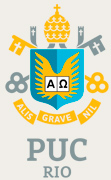Vol. 40, N° 1, Jan/Apr, 2018
The Role of Institutional-Legal Capacity and Power in Explaining the Performance of Developing Countries in WTO Disputes against the G2
Maria Izabel V. de Carvalho e Carlos Henrique Canesin

Abstract
This article analyses the performance of developing countries in WTO disputes against the USA and EU (the G2) from 1995 to 2012. It investigates the influence of four factors – WTO rules and norms, institutional-legal capacity, market power, and trade dynamics – on two samples, namely disputes initiated and successfully concluded against the G2. Generalized Linear Models (GLMs) are used to analyse the data. They show that, while relative bilateral exports also play a role, the institutional-legal capacity and market power of developing countries (as represented by GDP) play the most important role in allowing developing countries to initiate disputes against the G2, and to complete them successully.
Keywords: Developing countries and WTO disputes; WTO dispute settlement system; market power; Generalized Linear Model; institutional-legal capacity.
DOWNLOAD: The Role of Institutional-Legal Capacity and Power in Explaining the Performance of Developing Countries in WTO Disputes against the G2
 Instituto de Relações Internacionais
Instituto de Relações InternacionaisRua Marquês de São Vicente, 225 - Vila dos Diretórios, Casa 20, Gávea - Rio de Janeiro - RJ, Brasil
Tel/Fax: +55 21 3527-1557 3527-1558 3527-1560

